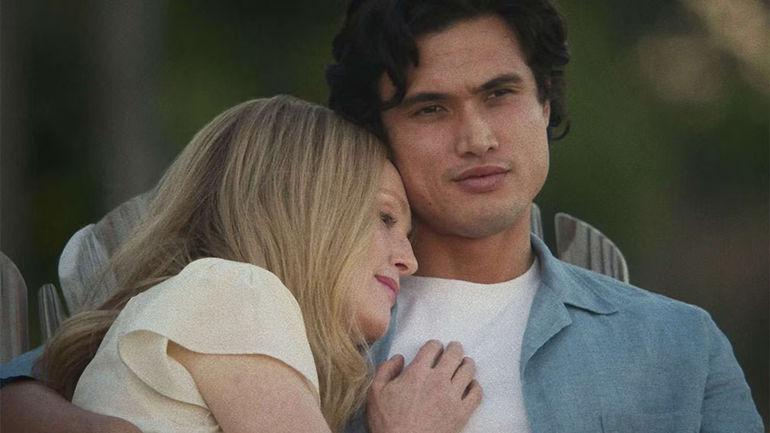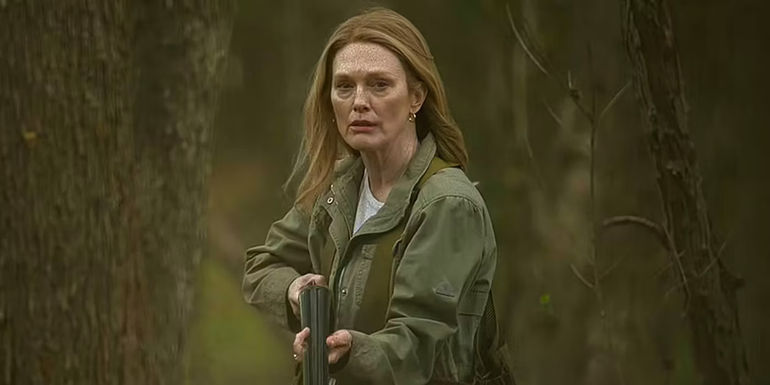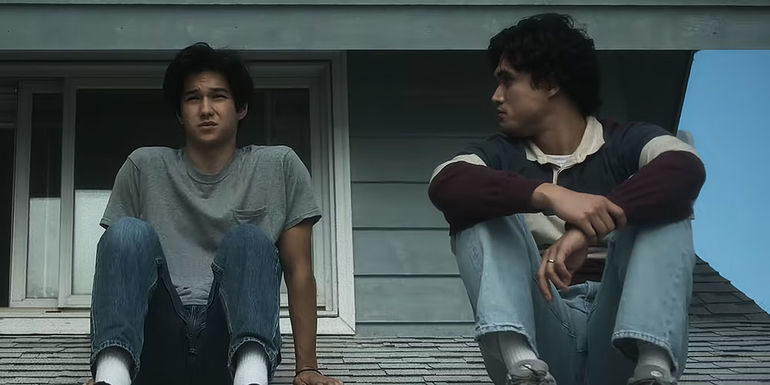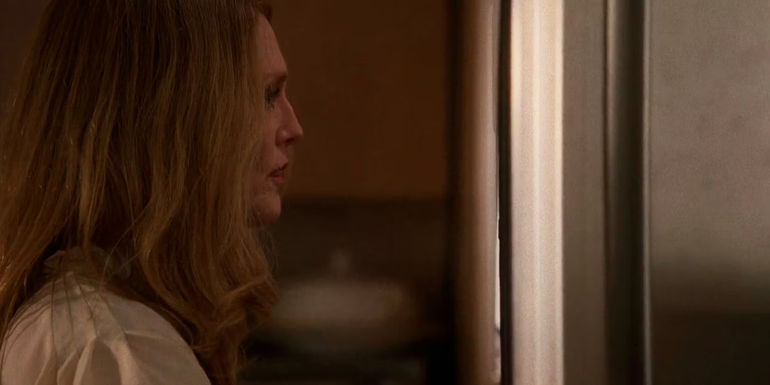
The Symbolism of Hobbies in May December: A Deep Dive into Gracie and Joe's Dynamic

An in-depth analysis of the symbolism of Gracie and Joe's hobbies in the film May December, and how they reflect the complex predator-prey dynamic between the characters.
May December: Unraveling the Symbolism
May December, directed by Todd Haynes, explores the intricate and haunting portrayal of a predatory relationship between Gracie (Julianne Moore) and Joe (Charles Melton). The film delves into the true story of an adult woman who preys on a 12-year-old boy, inspired by the real-life scandal of Mary Kay Letourneau and Vili Fualaau. As Elizabeth (Natalie Portman) immerses herself in the role of Gracie, the film unravels the symbolism behind the characters' hobbies and their profound significance in depicting the predator-prey dynamic.
julianne moore as gracie snuggling with charles melton as joe in may december
Gracie and Joe's hobbies are not merely recreational activities; they serve as powerful reflections of their roles in the predatory relationship. Gracie's penchant for hunting and Joe's nurturing of monarch butterflies are masterfully woven into the narrative, offering a poignant exploration of their internal states and the impact of their dynamic on their lives.
Gracie (Julianne Moore) hunting in May December.
The film employs cinematic devices and symbolism to depict the true internal states of both the predator, Gracie, and the victim, Joe, through their hobbies. These symbolic elements add layers of complexity to the characters and contribute to the emotional depth of the narrative.
Charlie and Joe in May December
Gracie's Hunting & Joe's Butterfly Hobbies: A Tragic Parallel
In May December, Gracie's hobby of hunting serves as a stark representation of her predatory nature. Her proficiency with a shotgun and her pursuit of prey in the woods mirror her predatory behavior in life, particularly in her relationship with Joe. The symbolism of Gracie's hobby is a direct reflection of her controlling and manipulative nature, evident not only in her predatory actions towards Joe but also in her suffocating influence on her children.
Gracie Atherton Opening The Fridge In May December
On the other hand, Joe's nurturing of monarch butterflies provides a contrasting yet equally profound symbolism. His gentle and caring hobby stands in stark contrast to Gracie's violent pursuit, symbolizing his innocence and vulnerability. The film delves into the deeper layers of Joe's hobby, revealing how it represents his longing for autonomy and his desire to protect the vulnerable, paralleling his own experience of being preyed upon by Gracie.
Joe (Charles Melton) covers his mouth with his hand and cries next to a fence in May December.
The tragic parallel between Gracie's hunting and Joe's butterfly hobbies serves as a poignant commentary on the lasting impact of their 23-year dynamic. While Gracie's predatory actions continue to manifest in her pursuit of control and power, Joe's nurturing of butterflies reflects his yearning for safety and autonomy, highlighting the enduring trauma of their relationship.
Charles Melton and Julianne Moore sitting on a bed in May December
The Agonizing Reflection: Joe's Heartbreaking Final Scene
The symbolism of Gracie and Joe's hobbies culminates in a heart-wrenching manner in Joe's final scene in May December. As he watches his children graduate, Joe experiences a profound emotional upheaval, transcending the typical parental pride and sadness. His tears and overwhelming emotions encapsulate the deep-seated impact of his relationship with Gracie, intertwining with the symbolism of his butterfly hobby.
For Joe, the act of releasing his butterflies into the wild mirrors his own journey of releasing his children from the clutches of Gracie. The bittersweet moment symbolizes Joe's simultaneous mourning of his lost childhood and his relief at sparing his children from the same fate. His final scene embodies the profound symbolism of his hobby and the enduring impact of his predatory relationship with Gracie, resonating with the audience in its emotional depth and complexity.
The portrayal of Joe's agonizing final scene in May December encapsulates the depth of symbolism embedded in the characters' hobbies, offering a poignant reflection of their predator-prey dynamic and the enduring trauma of their relationship.



















